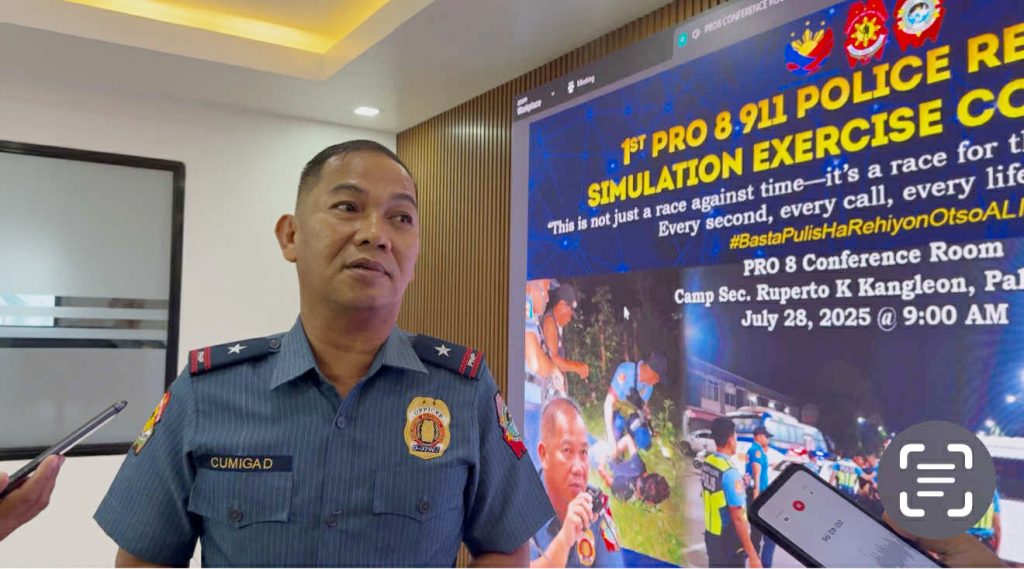
CAMP RUPERTO KANGLEON, PALO, Leyte– The Police Regional Office 8 (PRO-8), based here, staged on Monday, July 28, its first-ever 911 Response Simulation Exercise Competition, aimed at evaluating the readiness, speed, and coordination of police units across Eastern Visayas during emergency situations.
Held at the PRO-8 Conference Room, the exercise simulated a real-time emergency incident, challenging officers to respond as if it were a genuine call for police assistance.
The drill tested not only their response time but also the officers’ ability to follow protocols and make split-second decisions under pressure.
According to Police Regional Director B/Gen Jay Cumigad, the activity was designed to uncover gaps in operational plans and actual field execution. “The objective is to assess each station’s familiarity with existing procedures, identify areas that need improvement, and foster camaraderie among our police personnel,” he said.
A total of 15 police stations from across the six provinces of Eastern Visayas participated, grouped into different categories based on their operational classifications.
Cumigad reported that nearly 90% of the participating stations met the 5-minute response time target, a critical benchmark for real-world emergencies.
He said the results were encouraging and offered valuable feedback that will be used to fine-tune the police force’s emergency response capabilities.
To further motivate participants, winners received motorcycles, desktop computers, and body-worn cameras—equipment that will enhance future law enforcement operations.
The initiative forms part of PRO-8’s broader efforts to professionalize police work, boost public confidence, and ensure efficient delivery of services during emergencies.
(LIZBETH ANN A. ABELLA)



